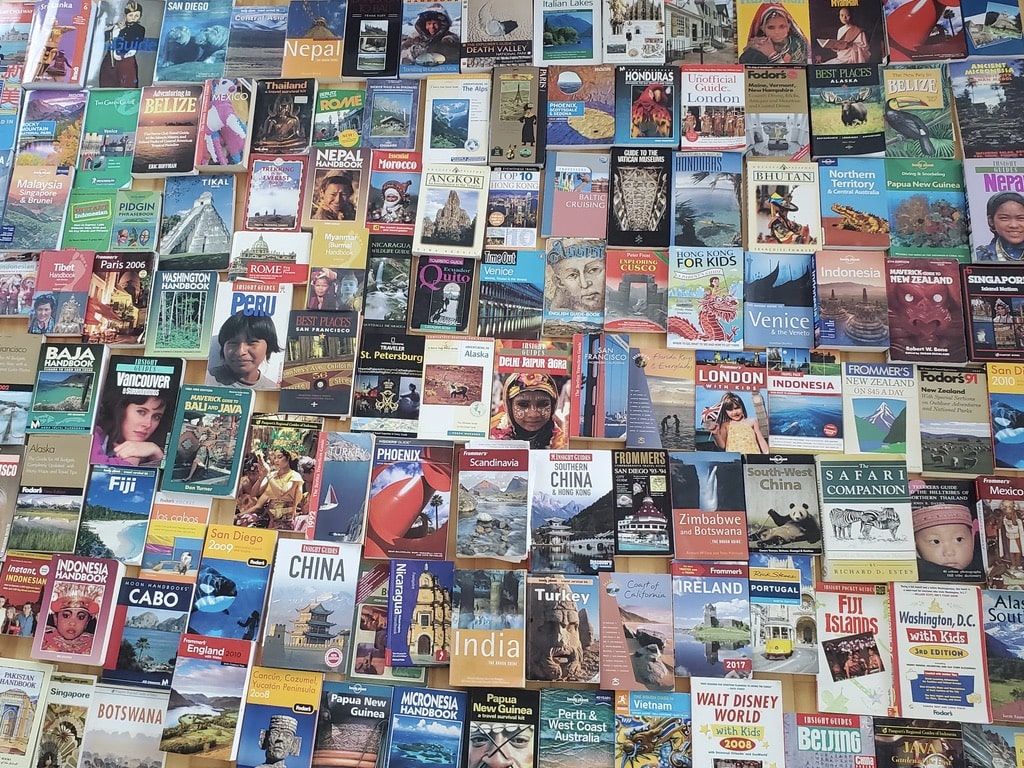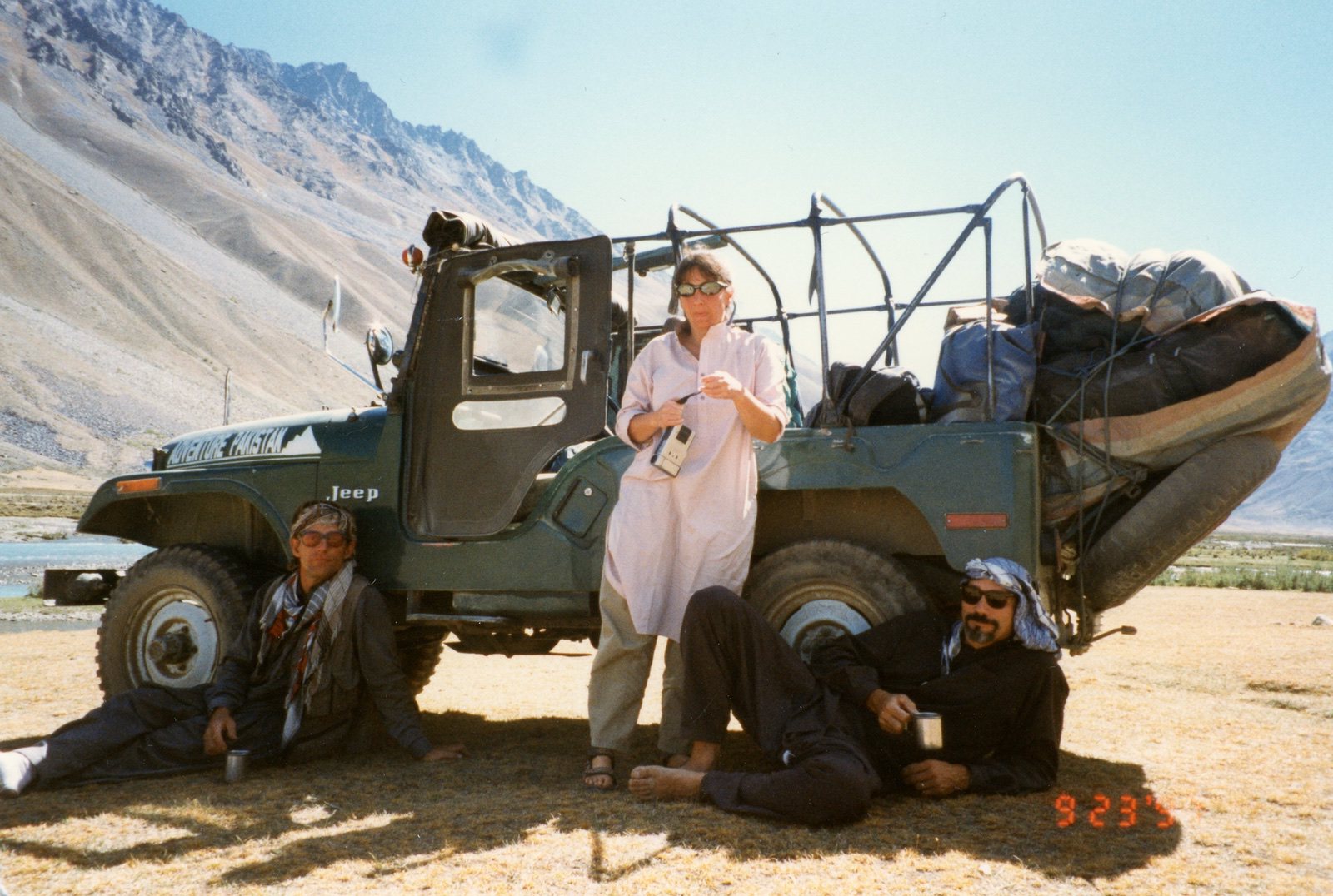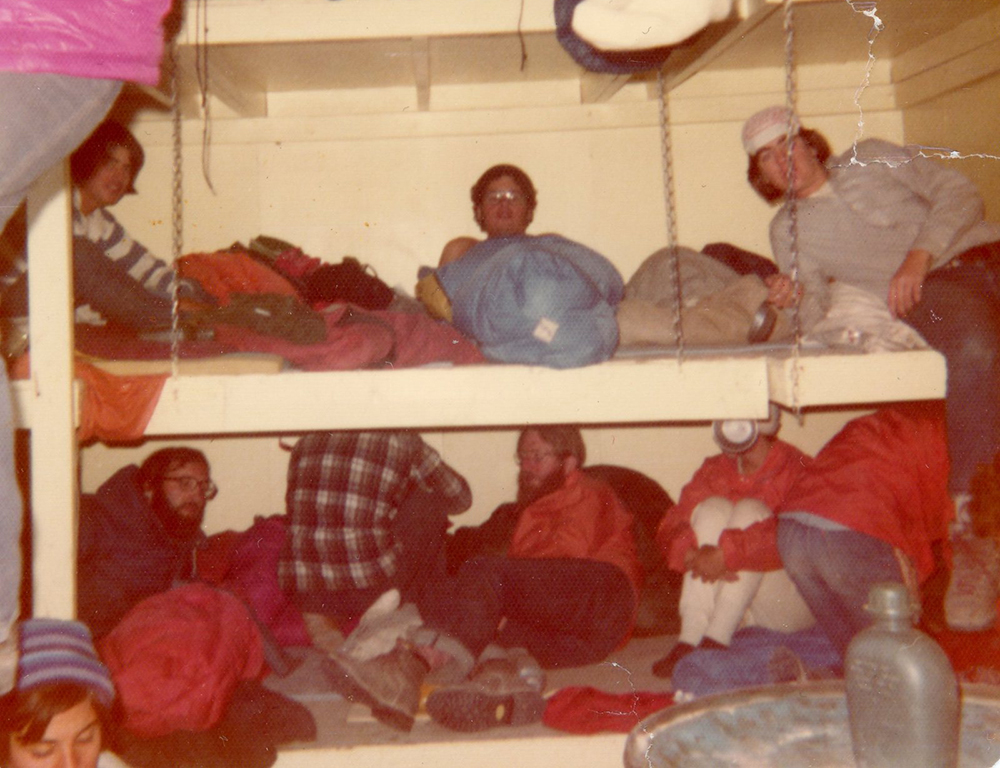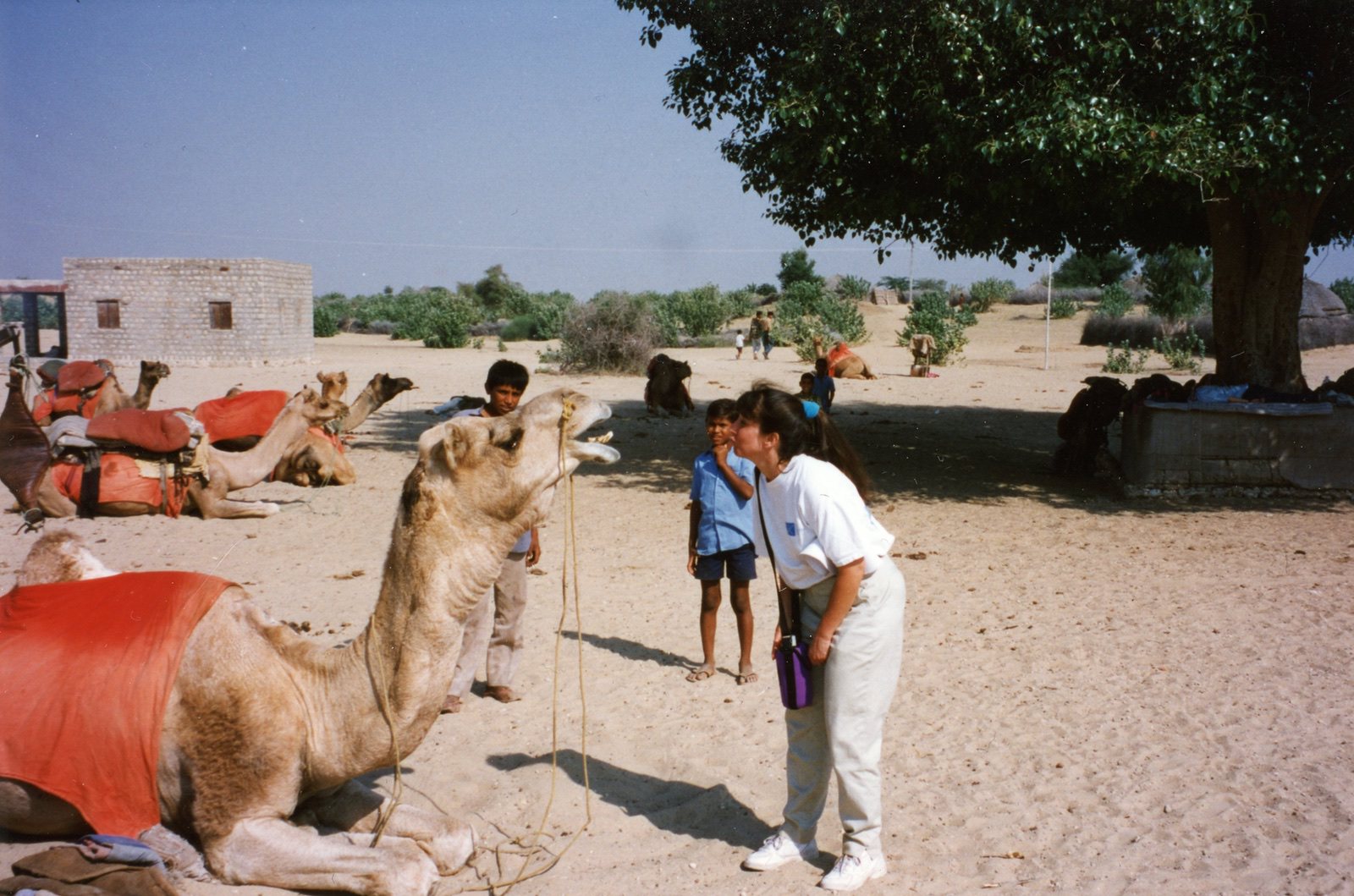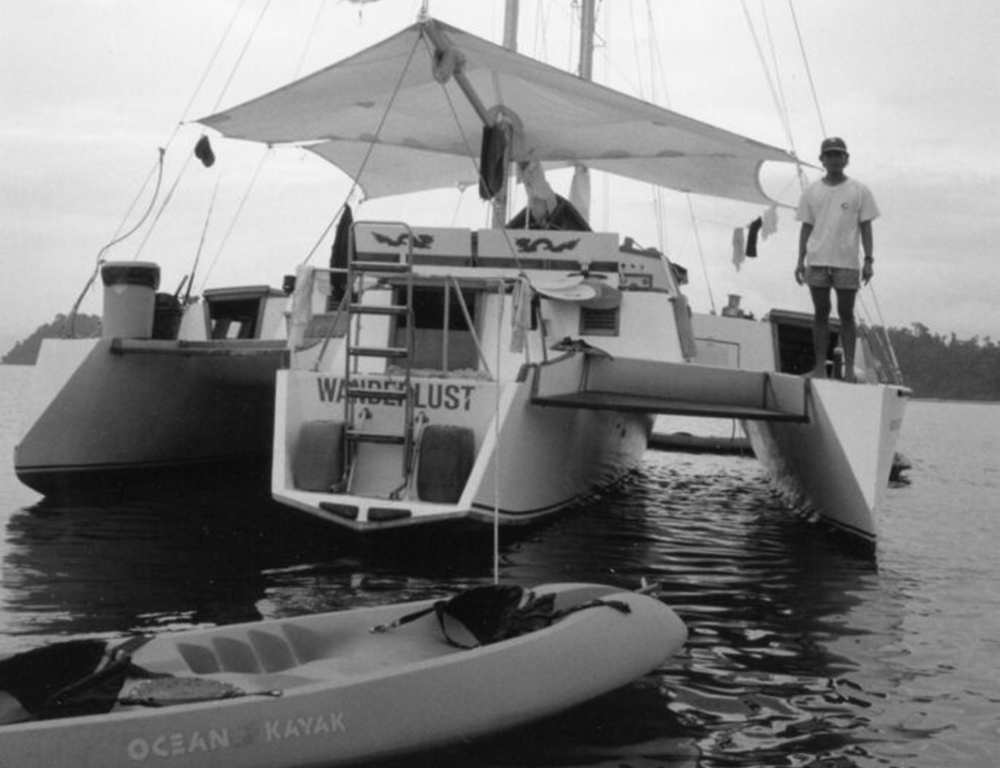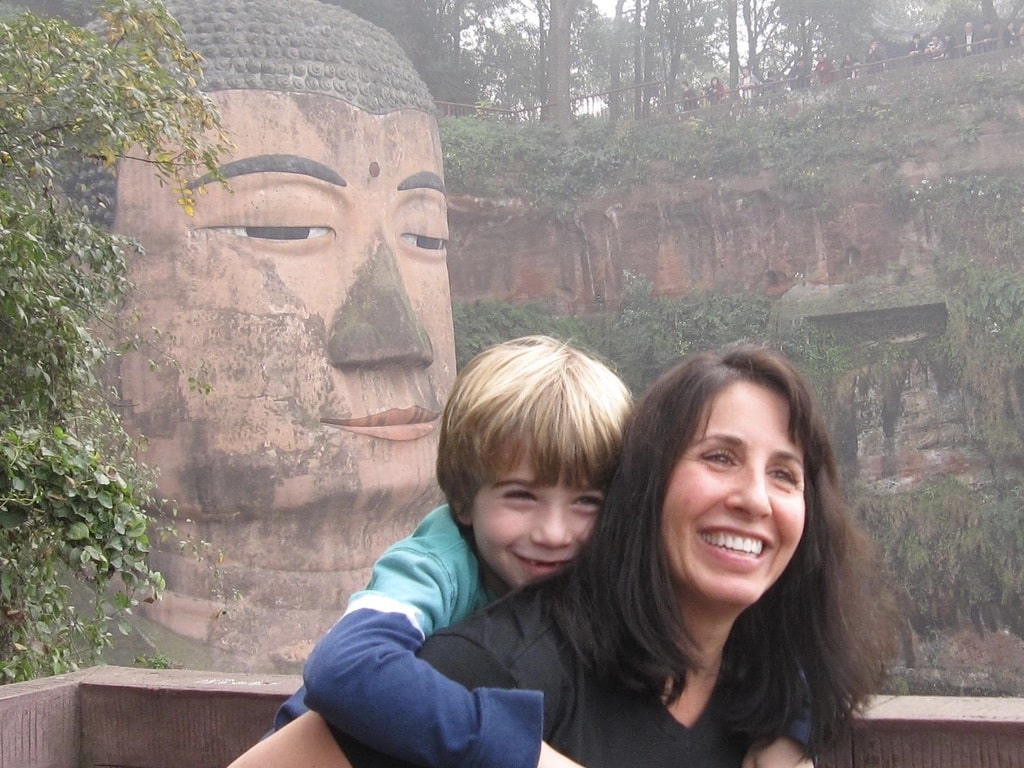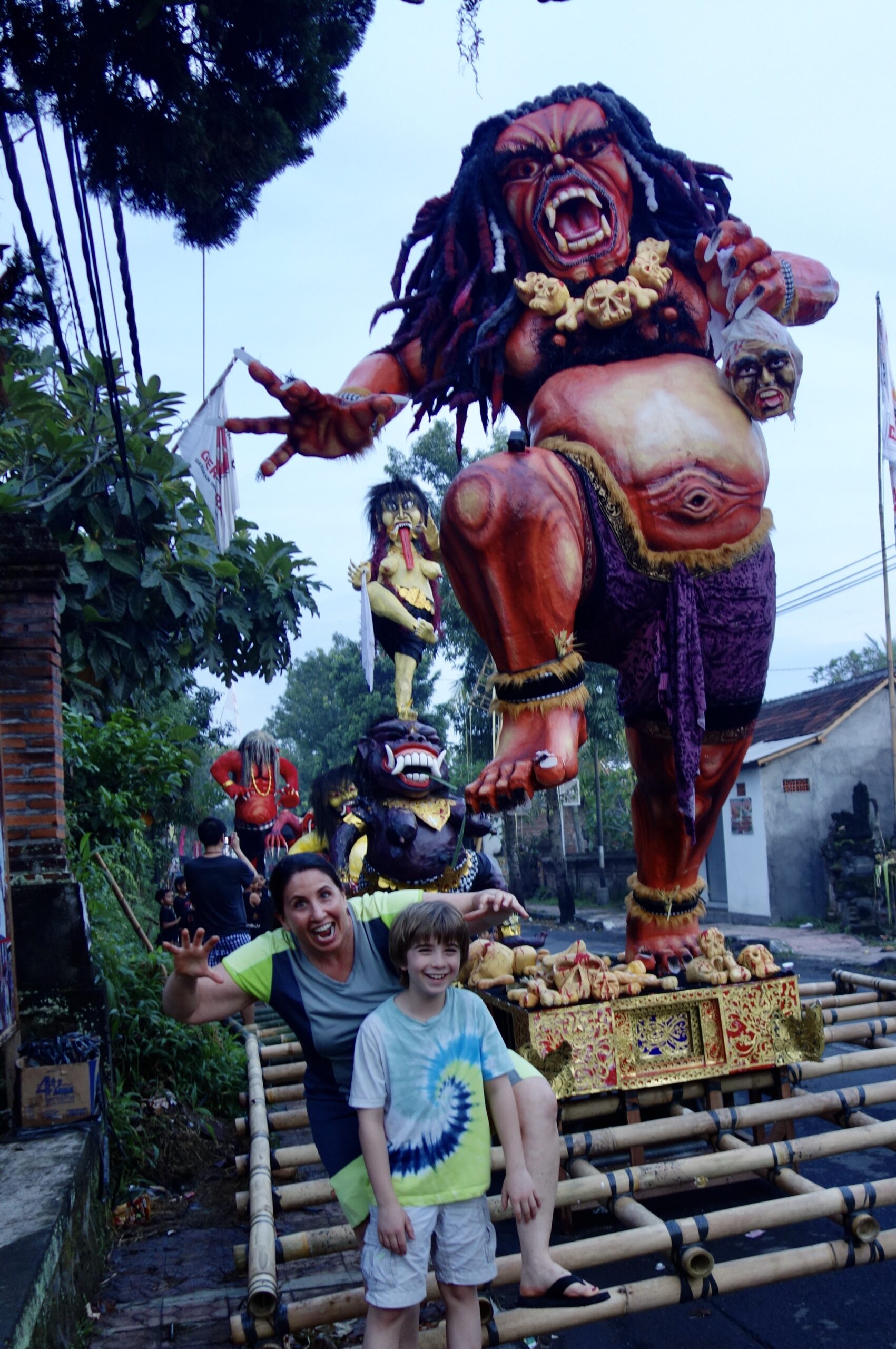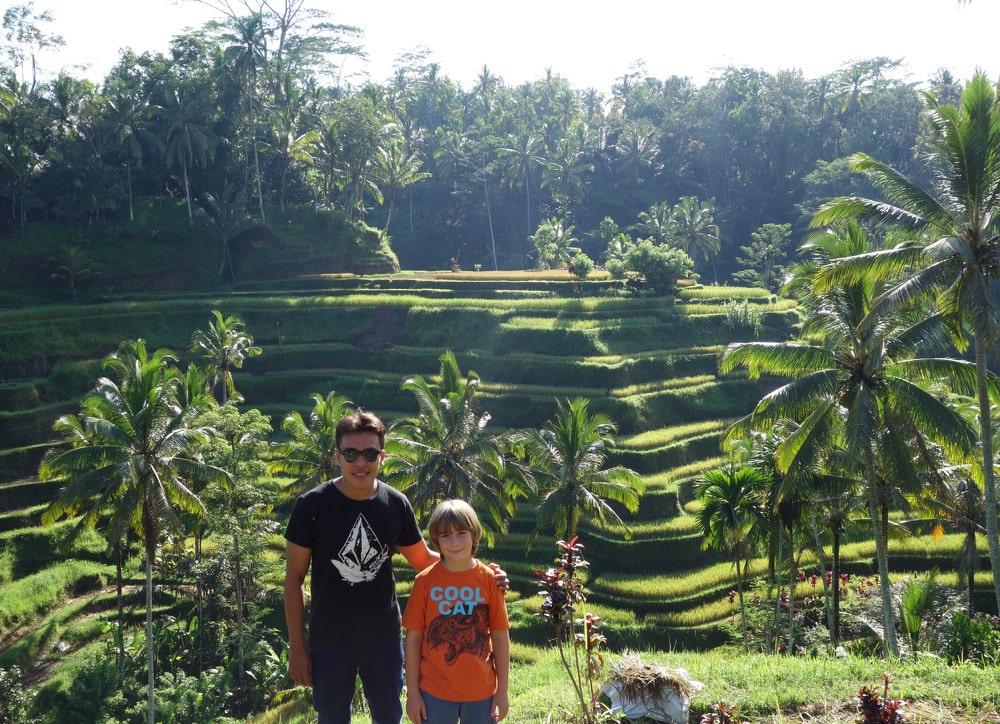Until we downsized recently, I had hundreds of travel guidebooks precariously stacked in my home office closet. Packing for our move, I spread the books out on the floor and saw decades of my travels and travel planning. Much of the information in these printed guidebooks is now obsolete. Prices change, currencies change, hotels and restaurants come and go, and even tourist information on monuments that remain—the Eiffel Tower, the Tower Bridge, the Great Wall of China, the Pyramids of Giza—is no longer current. But I was attached to these guidebooks. With no space in our new place to store the books, I removed and saved the covers before recycling the pages. Someday, I may wallpaper a small room (or a closet) with these covers, or I may just flip through them to evoke memories.
With the stack gone, I have started buying more physical guidebooks. Stuck in my Chicago highrise condo during the pandemic lockdowns, I read guidebooks and planned trips that never happened. I recently bought guidebooks for Taiwan (trip canceled), Sicily (trip canceled), Sardinia (trip canceled), Vancouver and Victoria (trip never booked due to border closure). Tired of cancellations, I bought guidebooks for places closer to home and vacations more likely to happen (the San Juan Islands, Maui, and Puerto Rico).
Why do I keep spending money and time on physical guidebooks when so much information is free online? First, I like books. Keeping a stack of travel books on my nightstand makes me happy and feeling like I can step away and onto a plane at any moment. Second, I find the typical organization useful. For example, Fodor’s travel guide to Maui has separate chapters on each region of the island. Within each region the book has maps and sections on travel, hotels, restaurants, beaches, sights, and activities. I find this more useful than scattershot internet research when I begin planning a trip.
I have also learned to turn to different guidebooks for different types of information. I often refer to multiple guidebooks for the same country by different franchises/publishers: Rick Steves, Fodor’s, Frommer’s, Insight Guides, Lonely Planet, Brandt, and Moon. Rick Steves’ guidebooks are often best for finding local guides. Fodor’s is best for finding luxury hotels. Insight Guides often have the best photos but not much practical information. Brandt is usually best for places Americans don’t often travel. Lonely Planet guides are no longer by and for only college students, it’s a big business now, but it still has the look of a book put together in someone’s garage.
Of course, I also comb the internet for ideas and reviews.
To supplement guidebooks, I use location-specific travel sites. Many places have “official” travel sites. For example, for Maui, you could try: https://www.mauicounty.gov/ or https://www.gohawaii.com/islands/maui
For an overview, I often start with Trip Advisor: https://www.tripadvisor.com/
With so many canceled flights and trips, I have a lot of points and miles, so often refer to The Points Guy: https://thepointsguy.com/
Conde Nast Traveler is searchable by location and has ideas and recommendations for places to stay and eat and things to do, plus gorgeous photos: https://www.cntraveler.com/
Before planning any overseas trip, I check the U.S. Department of State website for travel advisories. I often check again near departure: https://www.state.gov/
The Guardian has interesting in-depth travel pieces: https://www.theguardian.com/us/travel
I also look at the itineraries put together by travel companies for ideas of activities and hotels. For example, tours offered by the following companies (and others) are a great place to start planning your own trip (or to join one of theirs): https://www.backroads.com/, https://www.nationalgeographic.com/expeditions, https://www.audleytravel.com/us
Despite all the guidebooks and websites I refer to, planning only gets you so far. I always leave time for the unexpected, unplanned days or afternoons open to whatever we find. The best travel days and experiences are usually impromptu, so I plan for the impromptu!
